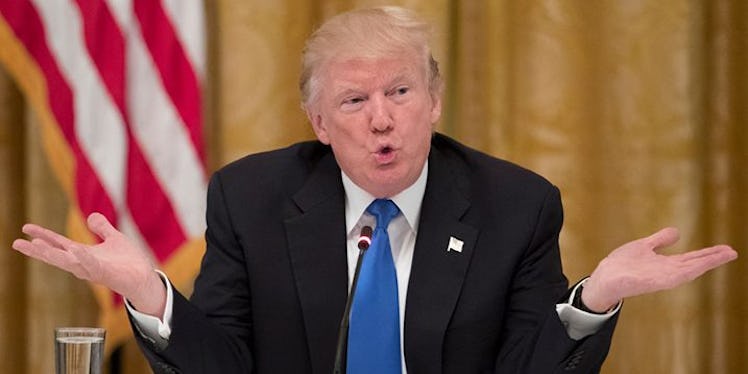
Trump Is Apparently Seeing If He Can Pardon Himself, But It Wouldn't Stop Impeachment
The procession of federal investigation appears to be concerning Donald Trump, but the president has reportedly inquired about a way to avoid some trouble.
Trump has explored whether he can pardon himself, family members, and associates, the Washington Post reported on Thursday, June 20.
If President Trump were to indeed go as far as pardoning individuals in his circle, it could theoretically make them immune to punishment from the law for any foul play discovered via the Russia investigation.
To be clear, the constitution grants all presidents the power to pardon individuals of federal crimes, and there is indeed precedent for pardon being given to a family member.
In 2001, right before the very end of his last term, former president Bill Clinton pardoned his brother, Roger Clinton, who was convicted for possession of cocaine. Also of note, a president can pardon people even before they are convicted of a crime.
Back in the '70s, former president Gerald Ford pardoned his predecessor Richard Nixon before Nixon had ever stood before a jury about allegedly directing an illegal break-in at the Watergate Hotel.
The act of a president pardoning himself, however, is one that has never happened before. There is no precedent for it, which means there are questions worth asking about such a process.
Among those questions, there's one that's easier to answer than most: Could a president pardoning himself make him immune to impeachment?
The answer is an unequivocal no.
The Constitution very clearly states a president has "Power to Grant Reprieves and Pardons for Offenses against the United States, except in Cases of Impeachment."
Pardons are meant to spare individuals for federal offenses, but the impeachment process is a different animal. Impeachment is not facilitated by a court of law, but by Congress.
The charges brought forth my impeachment, which is triggered by the House of Representatives, have to be answered to in front of different jury, the Senate. Furthermore, the result of a guilty verdict in such a trial would result in the removal of a president from power, and not the criminal sentences that pardons make people immune to.
In short, because of the specific way impeachment works, the answer is no. A president cannot pardon himself from impeachment.